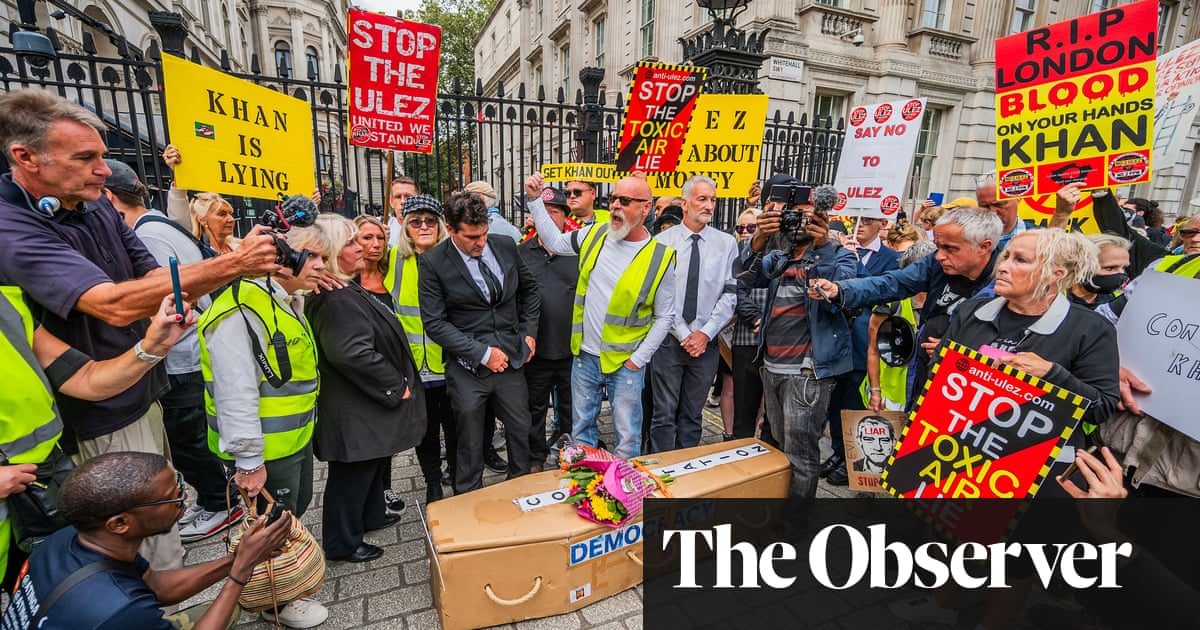
There has been a lot of public debate over the last few weeks over the role scientists are playing during the coronavirus crisis. In the space of just a few weeks, the likes of Chris Whitty, chief medical officer for England, and Patrick Vallance, the government’s chief scientific adviser, have become household names.
The experts who have guided the British public through coronavirus outbreak
Read more
As Covid-19 spreads around the world, scientists are taking a prominent role in advancing public knowledge about the virus by advising world leaders, providing expert comment in the media and urgently researching new ways of tackling the pandemic. We are lucky here in the UK: the scientists we have at the moment are as good as it gets. Whitty is a professor of epidemiology – this is what he does.
But as this crisis deepens the role of researchers will become even more fundamental as many are now being called upon to join the NHS frontline. Thankfully, we understand within the community that research can go on hold. What’s more, much of it has to because of social distancing.
We have taken the decision to release all our clinical staff from academic and research responsibilities at UCL, where I am head of the medical school, as part of a national effort to staff hospitals. These are medically trained staff, who work across the faculties of population health, medical, life, brain and engineering sciences. I expect we will see the same measures enacted soon nationwide. The medical community needs to do everything possible in response to this epidemic.
Advertisement
In nearly 35 years as a doctor, the coronavirus pandemic is like nothing I have witnessed – a global crisis, which will likely overload the health service in every country – if it hasn’t already done so. By this, I mean, health services will be overwhelmed by the demand put on them by the number of patients requiring treatment. I fear we have to see doctors and nurses working double, or even triple shifts. Many, themselves, will of course get sick, and will have to self-isolate, further compounding the problem.
My work at UCL requires me to look after the largest group of biomedical scientists in Europe. Two weeks ago, I started a regular, albeit occasional, clinical service as a consultant respiratory physician at London’s University College hospital alongside this. I always enjoy leaving the desk work behind and returning to my roots as a clinician. As things progress, I am in no doubt that I will spend more and more time on the frontline.
Coronavirus: the week explained - sign up for our email newsletter
Read more
My first week working in the wards was unremarkable. But by week two – last week – everything had changed. The ward became eerily quiet. Very few patients were referred to the respiratory team as we prepared for the expected influx of patients infected with the Covid-19 virus. Patients were moved to different wards or different hospitals, personal protective equipment arrived and the infectious diseases team grew overnight.
Then, the patients with Covid-19 started to arrive. As expected some were well, some poorly and new unexpected challenges emerged. Can a patient who is a contact of a patient with Covid-19 have an MRI scan? How can we get a patient home if their carer(s) are unwilling to look after them?
We live in unprecedented times, at least for my generation of 50-something doctors. We are three-four weeks behind Italy and the full force of the pandemic is about to break in the UK – which it is thought will not peak until mid-June. The horrific images that we see from Italy are likely to play out here. Of course I might get ill myself, but this is a challenge faced by everybody. Ideally, I hope I will be fine, but if I get it, I get it. I will self-isolate and hope I am fine.
The demand for beds and intensive care facilities, the difficult decisions with limited resources and the pressure on staff, will all build over the coming weeks and months. I have heard that many colleagues have offered to volunteer and have received numerous positive messages from our hospital colleagues. The government has said it will provide training for anyone who feels it is necessary.
Our senior students will also be given the opportunity to help and dozens of other highly skilled scientists working in our labs with relevant transferable skills will also be freed up. But UCL is not mandating this, it will be down to individual choice.
Whatever may happen over the coming weeks and months, I have never been so pleased that we have a “joined-up” public health structure, a “top down” NHS, dedicated and loyal staff from across the clinical field and the brightest and best-informed people advising the government on the way forward. Everyone is now stepping up in this new healthcare environment: health professionals doing what they do best. We are professionals, this is what we do. This is our moment. We have to step up and deliver.
• Prof David Lomas is vice provost (health), UCL and head of UCL medical school












